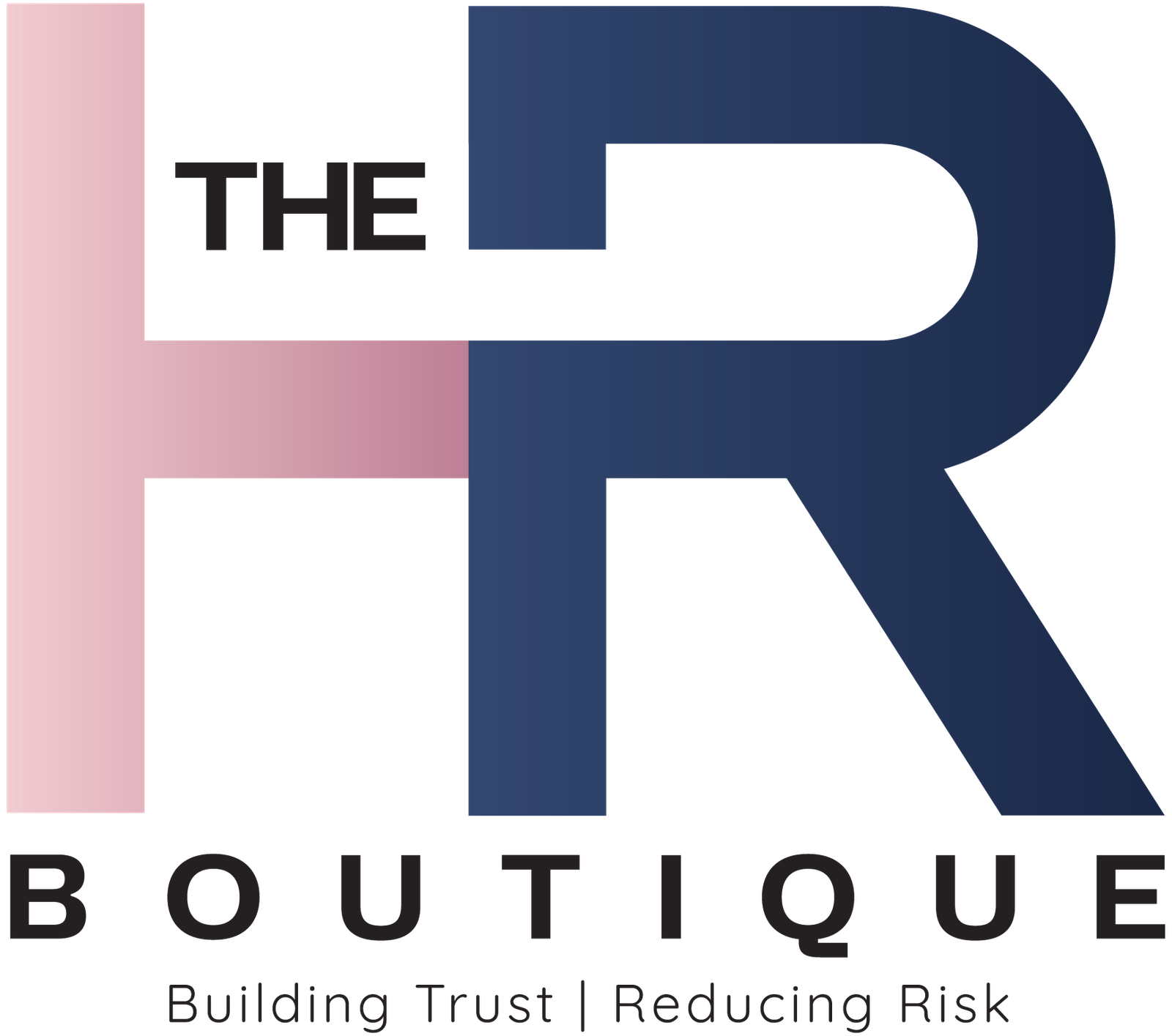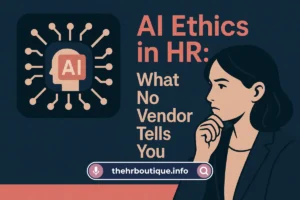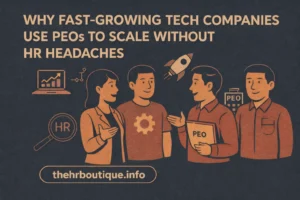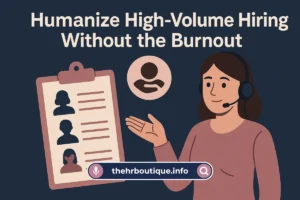Look, I get it. When most people hear “HR services,” they think of boring paperwork, stiff corporate policies, and maybe that one HR rep who always ruins the office vibe. But here’s the thing—if you’re running a business, whether it’s a three-person startup or a 300-employee company, HR isn’t just some administrative afterthought. It’s the backbone that keeps your team functioning (and keeps you out of legal trouble).
I’ve worked with enough businesses to know that most owners hate dealing with HR stuff. You didn’t start your company to become an expert in employment law or spend hours arguing with insurance providers. But ignoring HR? That’s how good businesses end up with:
- Employees quitting because they feel undervalued.
- Costly lawsuits from compliance mistakes.
- Payroll disasters that tank morale.
- Hiring nightmares that waste months of time.
So let’s cut through the corporate speak and talk about what HR services actually do, why they matter, and how to make them work for your business—without putting you to sleep in the process.
What HR Services Really Do? (Beyond the Paperwork)
1. They Handle the Hiring Stuff You Dread
Posting a job ad and praying for good applicants? That’s like throwing spaghetti at the wall. Real HR helps with:
- Writing job descriptions that actually attract the right people (no more “rockstar ninja” nonsense).
- Screening out the 80% of applicants who clearly didn’t read the requirements.
- Running interviews so you don’t accidentally hire someone who’s great at talking but terrible at working.
- Onboarding that doesn’t just consist of “here’s your laptop, good luck”.
2. They Keep Payroll From Becoming a Disaster
I once talked to a small business owner who manually calculated payroll in an Excel sheet. He missed a tax update, underpaid employees for months, and nearly got sued. HR services:
- Automate paycheck calculations (so no more accidental overtime screw-ups).
- Handle tax filings so the IRS doesn’t come after you.
- Deal with benefits deductions, 401(k) contributions, and all that other fun stuff.
3. They Navigate Employment Laws So You Don’t Have To
Here’s a fun fact: employment laws change constantly. That “independent contractor” you’ve been paying under the table? Could be a massive liability. HR keeps you safe by:
- Making sure you classify workers correctly (employee vs. contractor).
- Keeping up with minimum wage, overtime, and sick leave laws.
- Preventing discrimination claims (because yes, that offhand comment can get you sued).
4. They Actually Make Benefits Work for Your Team
Health insurance is a nightmare. Retirement plans are confusing. And trying to set up a PTO policy that doesn’t make everyone mad? Forget it. HR:
- Negotiates better rates on insurance than you could get alone.
- Explains benefits in plain English (not corporate jargon).
- Sets up systems so employees don’t have to beg for time off.
5. They Fix Problems Before They Explode
That tension between your sales and operations teams? The employee who’s always “sick” on Mondays? HR helps by:
- Mediating conflicts before they turn into full-blown drama.
- Creating clear performance plans (so underperformers either improve or leave).
- Spotting toxic patterns before your best people quit.
Why This Matters for Your Business?
If You’re Small (Under 50 Employees)
You probably don’t need a full HR department, but you do need:
- Payroll software (like Gusto or ADP) to avoid tax mistakes.
- An HR consultant for hiring and compliance checks.
- Basic policies in place so you’re not winging it when issues come up.
If You’re Growing Fast
Scaling without HR is like building a house without blueprints. You need:
- An HR manager (or outsourced HR firm) to handle the increasing complexity.
- Structured hiring processes (or you’ll waste months on bad hires).
- Employee development (or your team will outgrow their roles and leave).
If You’re a Larger Company
At this point, HR isn’t optional—it’s what keeps you from collapsing under your own size. You need:
- Specialized HR roles (recruiting, benefits, compliance).
- Real training programs (not just hoping managers figure it out).
- Culture-building (or toxicity will spread like wildfire).
The Bottom Line
HR isn’t about bureaucracy—it’s about protecting your business and keeping your team happy enough to stick around. The best businesses don’t see HR as a cost center; they see it as the system that lets everything else work smoothly.
So ask yourself:
- Are you reacting to HR problems (lawsuits, turnover, payroll errors)?
- Or are you preventing them?
Because in the long run, only one of those approaches actually saves you money—and sanity.
What’s your biggest HR headache right now? Let me know, and I’ll give you real, non-corporate advice on fixing it.





